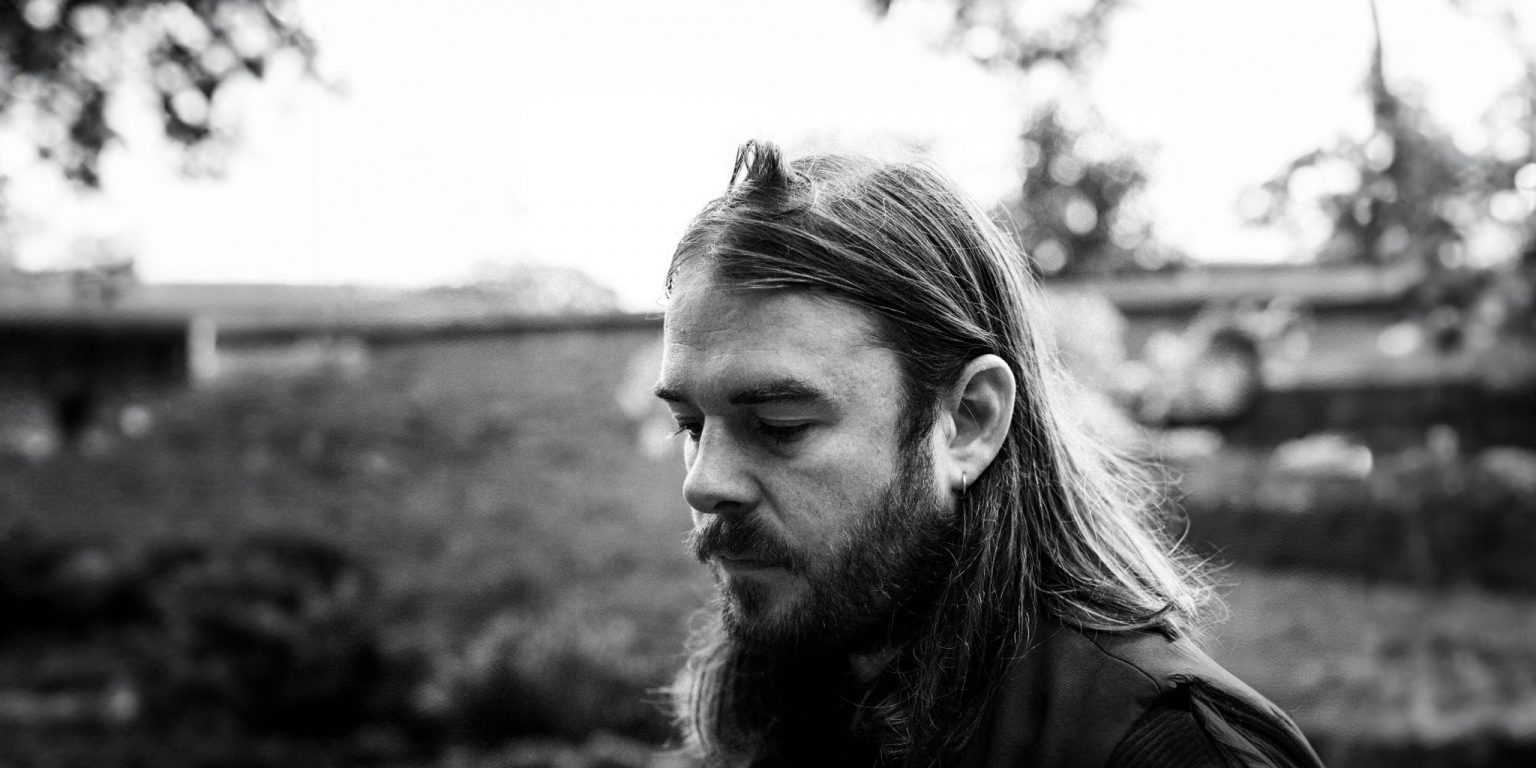
Love Thy Neighbour Presents: John Francis Flynn
Tickets: www.seetickets.com/event/john-francis-flynn/lewes-con-club/3018343
Bar from 2:00pm. Doors 7:00pm. Starts 7:15pm. Standing.
Often, to imagine Ireland is to fantasise about rolling hills, giants, saints and snakes. As John Francis Flynn says, it involves “a fair bit of paddywhackery and I hate paddywhackery.” The psyche-celtic album artwork for John’s second album Look Over The Wall, See The Sky, hints at this too though: a crystal goblet of luminous green Crème de Menthe resting upon a mossy ledge, perfectly encapsulating this imagined idea of Ireland in a way that is both funny and poignant. But, if you have to imagine Ireland in the first place, then you’re probably not too familiar with its reality: the towering glass giants of Google and Facebook, the unaffordable luxury hotels lining the Liffey amidst a homelessness epidemic and the highest rents in Europe.
On his new single ‘Mole In The Ground’, a cover of an American anti-establishment folk song recorded by Bascom Lamar Lunsford in 1928, John evokes the rebellious energy he felt in his home of Dublin during a time when it was being “torn to shreds by property developers and vulture funds.” In his rendition, John allows the surrealism of the song to take centre stage, opting to speak rather than sing the words. By taking away its nursery rhyme-like melody, we focus instead on our narrator’s stranger fantasies and desires. His voice, too, sits under the ground of the melody, tapping into the song’s dark, hallucinatory spirit: “I don’t like the railroad man/The railroad man will kill you when he can/ and he’ll drink up your blood like red wine.”
To listen to this album is to witness history through a modern lens in a trance-like state. As expected, Flynn’s contemporary influences are sufficiently esoteric, from ‘The Heart Pumps Kool Aid’ by —__–___ to ‘The invention of the Human’ by Dylan Henner (a concept album about an AI learning to sing). However, he was also inspired by his contemporaries in the traditional music scene in Ireland, many of whom contributed to the album, as well as those outside of it, such as noise-rockers Gilla Band and Rising Damp.
Traditional music of course is not one-size-fits-all. Each song has its own story, history and characters which the singer must serve. “You can’t sing all the songs. Well some people do. But you can tell if someone doesn’t connect with that song…” On the record’s closer, ‘Dirty Old Town’ by Ewan McColl, John takes a song that’s been “done to death”, strips it back, slows it down and unexpectedly adds brass, harking back to the working-class colliers bands of the early 20th Century. In his reimagining of the song, rather than intensifying it he does the opposite, offering a calm and grounding resolution to an otherwise otherworldly album.
On his last record, I Would Not Live Always, John was much more conscious of bringing acoustic instruments and weird synthesized sounds together as a concept. But now with his unique musical language fully formed, “I feel freer within that language to experiment and take it further without it being too conscious or premeditated”.
Instead, the songs seem to live somewhere in John’s subconscious, as he is often able to visualize exactly how they will sound before putting them down. With ‘Kitty’, (famously recorded by Shane MacGowan on The Pogues’ debut, ‘Red Roses For Me,’) John had already heard a version of this song structured loosely in his head involving a drone, a warped clarinet, and a simple Robert Wyatt-esque beat. The result is a two minute lament after which sudden distortion punctures through a wall of sadness before pulling back completely to just a singular drone. Similarly, with ‘Willy Crotty’ (a track recorded in a bedroom with members of The Mechanical Bull McCabe featuring the unlikely combination of a clarinet, a handheld radio, a Casio SK1, a harmonica and an effects pedal) we witness how this subversive way of recording can get to the root of a song’s emotion by removing the boundaries and expectations that traditional instruments can sometimes enforce. It is less about the use of drones or synthesizers or clarinets, “but it’s the treatment of them.”
These effects become John Francis Flynn’s guttural language; sometimes they are tiny droplets glitching in the background, other times they are great droning waves gushing through the songs. For John, they often come to represent a descent into intense sadness. Where we might hear horror or feel terror, John explains that these effects are always aiding the emotional leverage of the song, as for many of our protagonists, “these are the sounds of their lives are being torn apart.”
The sonic landscape created through the unconventional use of instruments jagged arrangements often teeters on the edge of disharmony, but it gives the work a magnetism by drawing you into its curious orbit of experimental folk. John masterfully unpicks traditional songs and rearranges them with an emotional force that sometimes leaves them unanchored. They float in a surreal space between the past and the present, the analog and the digital, between love and tragedy. Look Over The Wall, See The Sky is an album concerned with imagination, but not only with what John calls, “an imagined Ireland,” but also the re-imagining of traditional Irish music and the hopeful fantasy of an Ireland that could exist ‘over the wall’: powerful, hopeful and free.